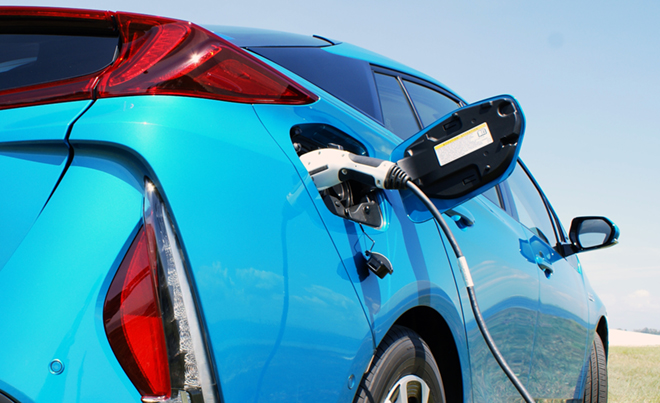The US federal fuel tax has not been increased in 25 years, and has thus lost nearly 40% of its value in inflation-adjusted terms. The trust fund that pays for highway maintenance is expected to run a $138-billion deficit by 2027 unless it can find new sources of revenue.
The US Chamber of Commerce has proposed phasing in a gas tax increase at $0.05 per year until it reaches $0.25 per gallon. If this comes to pass, it could be an impetus for increased EV sales. An analysis by consultancy Energy Innovation indicates that, under the Chamber of Commerce’s proposed scenario, annual EV sales would increase by about 100,000 units per year, adding 1.2 million EVs to US roads by 2050.
To evaluate the impacts of a gas tax increase, Energy Innovation ran a variety of simulations using the Energy Policy Simulator (EPS) computer model. The open-source and peer-reviewed EPS uses government data to assess the impacts of energy-related policies on emissions, costs and fuel consumption.
The study forecasts that the tax increase would create $39 billion in government revenue per year by 2022, and would reduce annual gasoline consumption by 30 to 35 million barrels. Energy Innovation also observed that a $0.25 gas tax would be equivalent to a $29 per ton carbon tax. As a general rule of thumb, each dollar of a carbon tax has about the same impact as a one-cent increase in gas prices.
Source: Energy Innovation




















































































